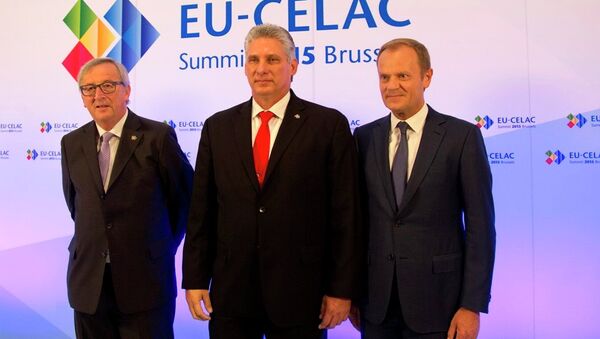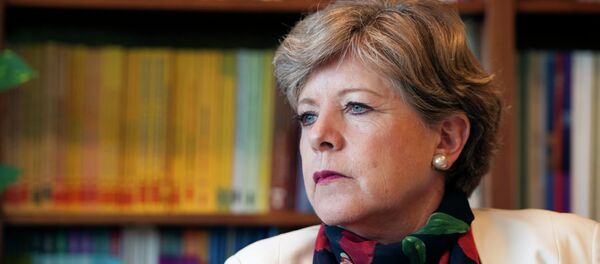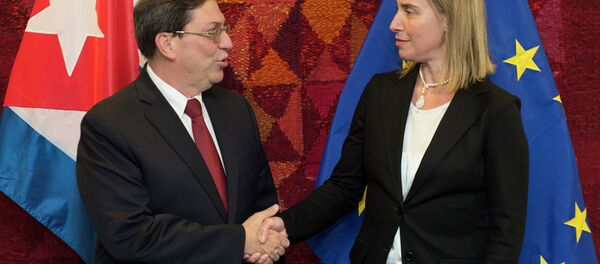The second day of the high profile EU-CELAC summit was marred after First Vice President of the Council of State of Cuba, Miguel Diaz-Canel Bermudez said: "We once again state our rejection of sanctions against this country.
"We warned from the very beginning that NATO's expansion towards the borders of the Russian Federation carries a serious threat for international peace, security and stability, as well as for Europe itself."
In his speech, posted on the website of the Cuban Foreign Ministry, the head of the Cuban delegation also focused on the establishment of diplomatic relations with the US.
#EUCELAC has started in Brussels today | facts & figures: http://t.co/JrYZ7mMaE0 #infographic via @eu_eeas #UECELAC pic.twitter.com/DiTPsKPIYg
— European Commission (@EU_Commission) June 10, 2015
#Lavrov: Our relations with several states – Argentina, Brazil, Venezuela, Cuba, Ecuador – have reached a new level of strategic partnership
— MFA Russia (@mfa_russia) June 5, 2015
"Despite an historic decision of Cuba and the United States to restore diplomatic relations, economic, trade and financial blockade against Cuba continues," Miguel Diaz-Canel Bermudez said.
Cuba Throws Spanner in the Works
Since 60 world leaders are attending the summit — with Germany's Angela Merkel, France's Francois Hollande and the UK's David Cameron all attending — and the summit theme is "Shaping our common future: working for prosperous, cohesive and sustainable societies for our citizens."
The warming of relations between the US and Cuba was hailed by US President Barack Obama as a major breakthrough in diplomatic relations between the two nations. The two countries have been in a fifty-year stand-off that began with the Cuban missile crisis in 1962, when the US and the Soviet Union escalated tensions to near nuclear war over Soviet nuclear warheads in Cuba. However, Obama is keen to seek a warming-up of relations — not least because his policy of isolating Cuba has been a diplomatic failure.
The EU, meanwhile, is keen to increase trade with both Cuba and other Latin American countries.
Day one of the summit saw the European Union commit $133 million (€118mm) in investment support for Latin American and Caribbean states.
However, the crisis in Ukraine, following the western-backed uprising in Kiev has led to sanctions being imposed against Russia. After calls for a toughening of sanctions by the leaders of the G7 nations last week, Cuba's intervention will make diplomatic efforts to warm up Cuba-US relations and increase economic ties with the EU more difficult in the short-term.




